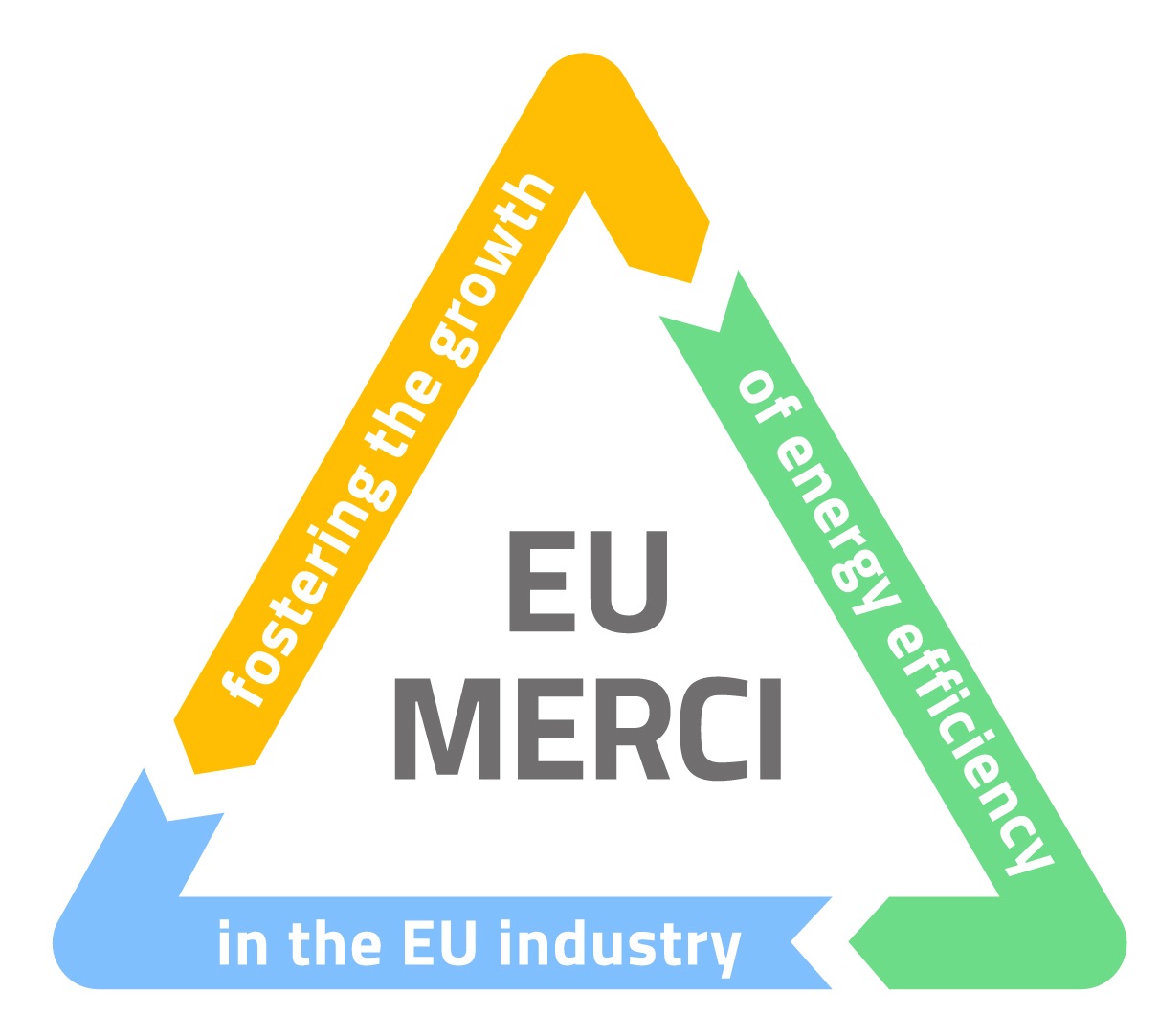Policies of incentivisation and implementation
Rome – February, 23rd 2017
The first section was dedicated to the presentation of the preliminary results of EU-MERCI by partners of the project.
Finally, Anna Realini from RSE and Alexander Farsan from CBT illustrated the concept of Good Practice according to EU-MERCI, i.e. an efficiency measure or combination of measures, really implemented, whose effectiveness can be tangibly measured vis-à-vis of pre-defined key performance indicators dealing, besides the energy savings, with economic and environment sustainability, as well as, with technology add value, productivity and competitiveness impact.
The second section of the conference was focussed on EU policy and investment issues related to efficiency in the industry and related implementation mechanisms.
After that, Domenico Rotiroti from GSE described the Italian White Certificate Mechanism, which is the main support scheme in Italy for energy efficiency in industry and an important reference for the analysis of real efficiency measures done in EU-MERCI. The presentation provided a picture of the functioning of the overall mechanism and both the results and the energy fallouts obtained in the last years. Some exemplary energy efficiency projects in the Italian industrial sector were also shown, providing a suggestive support to the concept of Good practices currently elaborated by EU-MERCI.Finally, the third Section of the Conference was devoted to the presentation of the trends and needs of Energy Efficiency in the Italian Industry, which play a fundamental role to shape the outcome of EU-MERCI, providing a guidance on the most promising and interesting sectors to analyze.
The section was closed by Dimitra Mintsidis, from FEDERESCO, who made a presentation focussed on the role of ESCOs and their importance to promote energy efficiency in the industries, an aspect which is taken into account in the scope of EU-MERCI.
The final discussion recalled the themes emerged during the presentation and, in particular, a debate rose around the barriers encountered by ESCOs in supporting companies implementing efficiency projects. Difficulties are generally shared at the EU level, especially related to the access to the finance, generating the diffuse orientation to the self-funding by industries, as shown by the above mentioned EU-MERCI survey. Mechanisms like EPC, in place especially in building field, could be a valid reference: however, their application in the industry context is still under discussion. The debate also touched the issue of the harmonization of policies and rules at world level. Contradictory and dangerous rules were denounced with reference to the well-known Carbon Leakage phenomenon.
- Policies of incentivisation and implementation – Giorgio Franchioni (RSE – EU-MERCI Coordinator)
- Growing energy efficiency in the European industry: policies, good practices and technology transfer – Vlasios Oikonomou, JIN
- Good Practices of Energy Efficiency in the European Industry processes – Marcus Hofmann, Austrian Energy Agency
- Criteria for the selection of Good Practices – Anna Realini, RSE – Alexander Farsan, Carbon Trust
- EU policies for energy efficiency in Industry – Dario Di Santo, FIRE
- The de-risking energy efficiency platform (DEEP) – Clemens Rohde, Fraunhofer ISI
- TheItalianWhiteCertificates Scheme Results and energy fallouts – Domenico Rotiroti, GSE
- Overview of trends and needs of Energy Efficiency in the Italian Industry – Corine Nsangwe Businge, RSE
- Energy efficiency in Electric Arc Furnace steel production – Filippo Cirilli, Centro Sviluppo Materiali S.p.A.
- The role of ESCos – Dimitra Mintsidis, Federesco
- Energy efficiency as driver for the competitiveness of the Italian agri-food industry – Massilimiliano Boccardelli, Federalimentare SPES
